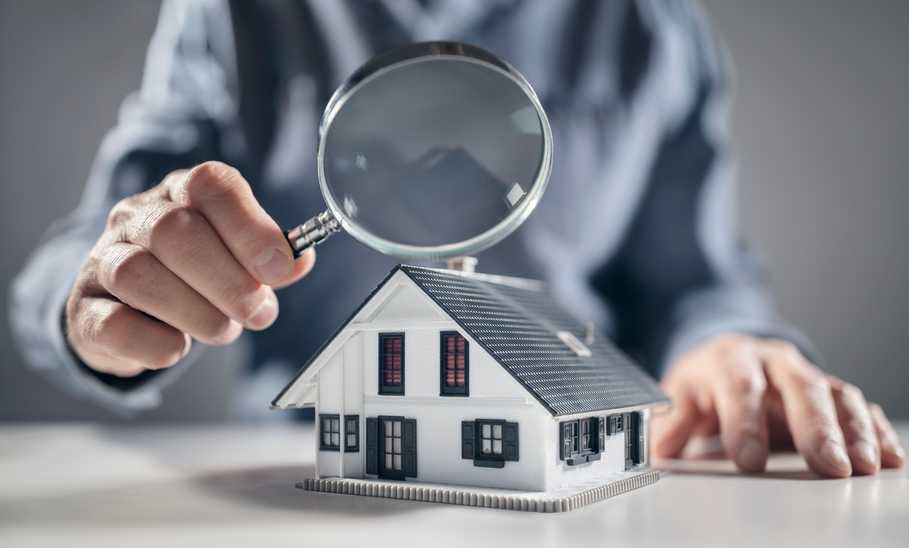Home Appraisal: What Is It, How It Works, Types

Our evaluations and opinions are not influenced by our advertising relationships, but we may earn a commission from our partners’ links. This content is created by TIME Stamped, under TIME’s direction and produced in accordance with TIME’s editorial guidelines and overseen by TIME’s editorial staff. Learn more about it.
When buying or refinancing a home, you may be asked to order a home appraisal, which is an unbiased, professional report designed to give you a good estimate of a property’s current market value. It considers several factors, including market trends, and is often required when a mortgage loan is needed.
If you are in the process of buying a home or refinancing a house you already own, you will typically have to order a home appraisal. A lender wants to know that the property securing the loan, known as the “collateral,” is worth enough to reduce their risk.
If you’re buying a property outright in cash, you can decide whether you want a home appraisal or not; as you aren’t borrowing money for the purchase, it isn’t mandated for the transaction. However, an appraisal can still be a great way to ensure that you aren’t overpaying for a property and are purchasing the right amount of homeowner’s insurance coverage.
Here are the steps you need to take for a home appraisal.
If you are working with a mortgage lender, they will need to order the appraisal through their platform. This ensures that the inspector is unbiased and has no conflict of interest. If you aren’t working with a lender, you can shop around for a licensed residential appraiser through your state’s database, such as this one for New York State.
Whether you schedule the home appraisal through a lender or on your own, you will typically be responsible for paying for the home appraisal report if you are buying or refinancing a home.
Once the appraisal is scheduled, your home appraiser will begin working on your home’s valuation. This often means pulling surveys and county records and looking at comparable properties that have recently sold in your area (called “comps”). Often, buyers aren’t allowed to be present for the home appraisal inspection, especially if it was ordered by the lender. You’ll just have to wait for the result.
Once the home appraisal report is complete, you will find out the estimated market value for the property. But you may or may not receive a copy of the appraisal report—it depends on the situation. If you hired the appraiser directly to appraise a home you already own, then they will provide you with the completed report. After all, it’s your home and they completed the appraisal for you.
However, if your lender ordered the appraisal, it will receive the report directly from the appraiser. Even though you paid for the appraisal, the report belongs to the lender as it was part of the mortgage approval process. That said, you can request a copy of the appraisal report from the lender after the fact, and they may be willing to provide you with a copy.
If you’re buying a home, the appraisal results can impact your decision to proceed. For example, if the valuation returns lower than expected, proceeding at the price you agreed to in the purchase contract may not be wise. You may be able to use this number to renegotiate the purchase contract with your seller or even back out of the transaction altogether.
There are four types of home appraisals. The right one for you depends on the details of your transaction and why the report is being ordered in the first place.
This is the most common type of home appraisal. It’s a comprehensive report that involves an appraiser visiting the home to inspect the interior and exterior of the property, take photos and measurements, and use other data to give the most accurate valuation of the home.
This is also known as a “drive-by” appraisal. As the name implies, it uses the property’s exterior condition along with comparables and neighborhood characteristics to generate an opinion of the home’s market value. Unlike a full appraisal, it does not include interior measurements or photos, nor will the appraiser walk through the inside of the home.
A desktop appraisal does not involve an in-person visit and is not often used. Instead, it relies on data provided by agents, the current homeowner, previous appraisal reports, public records, Multiple Listing Service (MLS) listings, and county records searches. This sight-unseen report will still include a floor plan and exterior dimensions of the home, but it will not be as comprehensive as other reports.
A hybrid appraisal involves asking a third party, often a qualified real estate agent or another appraiser, to perform the in-person evaluation which is then provided to a licensed appraiser for the final report. This kind of appraisal is designed to help reduce appraiser shortages, but it may not be accepted in all circumstances.
A home appraisal is designed to offer a professional opinion as to the estimated value of the home. A home inspection is intended to assess the property’s physical condition and identify issues that may exist before you move forward with a purchase.
Both appraisers and home inspectors consider the overall condition of the home and major features or systems, such as the roof, foundation, and walls. However, home inspectors dig deeper and investigate things such as plumbing, electrical systems, HVAC, ceilings, doors, attics, floors, and windows. An appraisal will generally utilize outside information, such as previous surveys and local comparables; an inspection won’t.
Both involve a licensed professional who typically visits the home to inspect the interior and/or exterior and even take photographs. The buyer (or, in the case of a refinance, the existing owner) is usually responsible for the cost.
A home appraiser will consider several factors in their quest to properly value your home. These include its general condition, key features, and external factors, such as the local market and nearby neighborhoods.
A home appraiser will look at many things, including:
An appraiser will also look at comps from similar properties in your local area that have sold recently. This helps to determine what it is worth today in a specific market.
The average cost of a home appraisal report is approximately $350 to $600. However, the price can vary by location and factors such as the size and complexity of the home.
If you are buying or refinancing a home through a mortgage lender, an appraisal is likely a required step in that process. In most cases, you are responsible for footing the bill for this report. Aside from paying for the appraisal report, here are some things you should know in advance.
If you’re buying a new home, you actually won’t have much input or involvement in the home appraisal process outside of making your payment. To avoid bias and conflicts of interest, you are not allowed to choose the appraiser or even schedule the inspection. Your mortgage lender will typically do this through an approved portal, and the appraiser will work with either the buyer’s or seller’s agent to schedule access to the home.
If you are refinancing the mortgage on your existing home, you can prep the property a bit before the home appraisal occurs. This might mean cleaning up the exterior, repairing any damaged areas, or replacing broken appliances or systems. If you plan to paint, add landscaping, or make other small changes to spruce up the property, now is a great time to do so and improve the home’s curb appeal. While this may not make a substantial difference in its value, every little factor counts.
You may also want to speak with your lender about the appraisal process and how it might affect your closing timeline. Certain lenders can guarantee a 14-day close. However, depending on your location and the appraiser's availability, ordering and receiving an appraisal report could take longer than that, so your closing could potentially be delayed.
A home appraisal report offers a reliable estimate of a home’s current market value, which can be used when financing a purchase, refinancing a home, or buying the right amount of homeowner’s insurance coverage. Unbiased and licensed inspectors conduct these reports and are usually ordered by the mortgage lender directly. The buyer or refinancer is generally required to pay for the report.
Once an appraisal has been requested, it can take anywhere from a few days to multiple weeks before the report is completed, depending on the property location and the appraiser's availability. For the actual inspection, the appraiser will need to be in the home for anywhere from 15 minutes to several hours, depending on the size and complexity of the property. The appraiser may also need a few days to gather additional information, such as pulling comps from local properties or speaking with the real estate agent.
If you are financing a home purchase or refinancing your current home through a lender, you will likely need a home appraisal. However, a home appraisal is optional if you buy a property with cash, with no financing. However, you may still want an appraisal as it will give you peace of mind about your purchase.
The cost of a home appraisal is usually covered by the homebuyer or refinancing homeowner. However, the purchasing lender is responsible for ordering the report. The fee is typically billed prior to closing, so be prepared to encounter this cost upfront.
The information presented here is created by TIME Stamped and overseen by TIME editorial staff. To learn more, see our About Us page.



